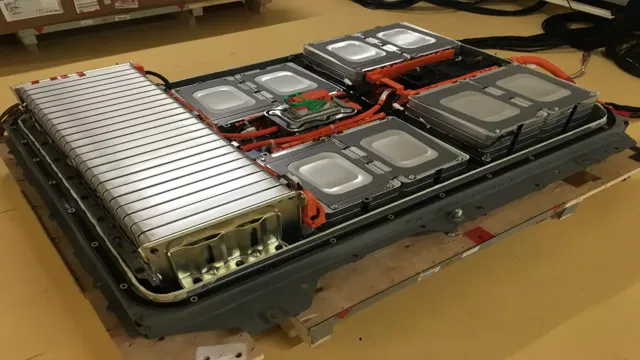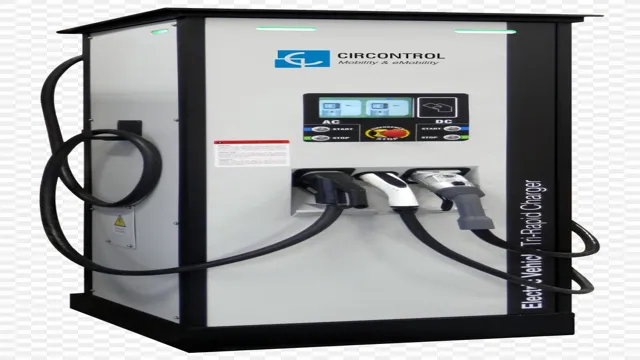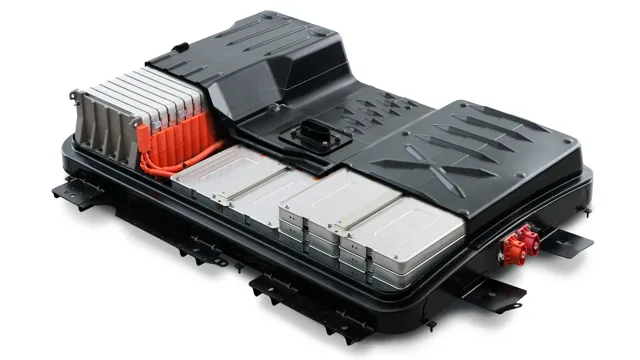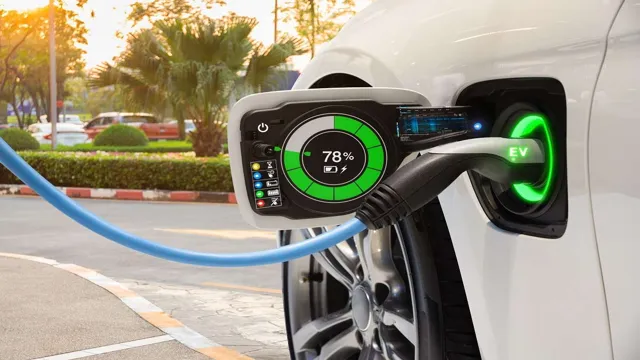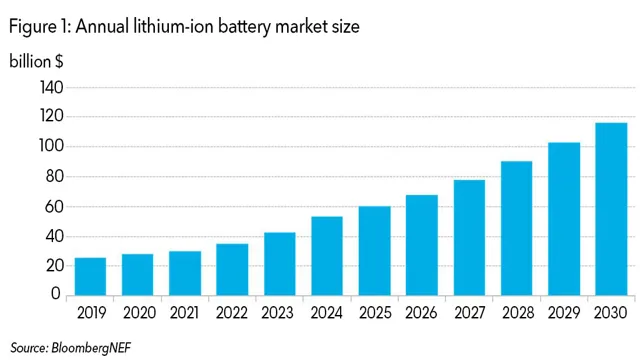The Shocking Truth: The Average Electric Car Battery Size You Need to Know
Electric cars have certainly been a game-changer when it comes to environmentally-friendly transportation. With virtually zero emissions, more and more drivers are turning to these cars as a way to reduce their carbon footprint. However, many people still have questions about electric cars, such as the average electric car battery size.
So, just how big are these batteries and what can they do? In this blog post, we’ll explore the topic in-depth and provide you with all the information you need to know about electric car batteries. From their size to their capabilities, we’ll break it down so that you have a better understanding of these eco-friendly cars. Get ready to learn something new and exciting!
Introduction
When it comes to electric cars, one of the main considerations for potential buyers is the battery size. On average, electric car batteries have a capacity of around 60 to 100 kilowatt-hours (kWh). This means that an electric car can travel between 200 and 300 miles on a single charge.
Of course, the actual range will depend on factors such as the driving style, the terrain, and the outside temperature. Generally speaking, the larger the battery, the longer the range. However, a larger battery also means a higher cost.
This is why many manufacturers offer a range of different battery sizes, so that buyers can choose the one that best suits their needs. More and more people are considering electric cars as a viable option, and as battery technology continues to improve, we can expect to see even better performance and longer ranges. So, if you’re thinking of making the switch to electric, rest assured that there are plenty of options out there to suit your needs and your budget.
What is an electric car battery?
Electric car batteries are an essential component of electric vehicles, providing the power that drives the motor. Instead of relying on gasoline or diesel fuel, electric cars use a large rechargeable battery pack that stores energy to power the vehicle. These batteries are made up of multiple lithium-ion cells, which can vary in size depending on the car’s requirements.
The battery pack’s size and capacity determine how far the car can travel on a single charge, with the latest electric vehicles offering ranges of over 300 miles. As technology advances, electric car batteries are becoming smaller, lighter, and more efficient, making them a popular choice for eco-conscious consumers looking to reduce their carbon footprint.
The importance of electric car battery size
Electric car battery size plays a crucial role in the performance, range, and cost of an electric vehicle (EV). Essentially, the battery size determines how far an EV can travel on a single charge and how much power it can produce. Therefore, it is no surprise that EV manufacturers prioritize increasing the battery capacity to improve the driving experience and make electric cars more appealing to consumers.
The bigger the battery size, the more range an EV has, and the less often it needs to be charged. Additionally, larger batteries enable more powerful electric motors that provide better acceleration and top speed. As a result, the overall cost of the car can be higher with a bigger battery, but it is often worth the investment in terms of convenience and performance.
Ultimately, the importance of electric car battery size cannot be overstated, and it is a crucial factor for both manufacturers and buyers when it comes to EVs.
Average Battery Size by Brand
Looking at the average electric car battery size by brand can give us an idea of who is leading the way in the industry. Tesla, one of the most well-known electric car brands, is known for having larger battery sizes. The average battery size for a Tesla Model S is around 100 kWh, while the Tesla Model X has an average battery size of around 95 kWh.
Other brands like Chevrolet have a smaller average battery size, with the Chevrolet Bolt having an average battery size of around 60 kWh. However, it’s important to note that battery size isn’t the sole factor in determining a car’s range and performance. Other factors, such as energy efficiency, aerodynamics, and weight, can also play a role.
Nonetheless, as the electric car market continues to grow, we can expect to see further developments in battery technology and greater consistency in battery size across brands.
Tesla
Tesla When it comes to electric car brands, Tesla is definitely one of the most well-known in the market. But how does its average battery size compare to other brands? In general, Tesla vehicles have larger battery sizes compared to other brands. For example, the Tesla Model S has an average battery size of 100 kWh, while the Hyundai Kona Electric has an average battery size of 64 kWh and the Nissan Leaf has an average battery size of 40 kWh.
Of course, battery size isn’t the only factor that determines the range and capabilities of electric cars, but it is an important one. Tesla’s larger battery sizes allow for longer ranges and faster acceleration, which has helped it gain a reputation for high performance in the electric car market. Additionally, Tesla’s battery technology has been praised for its durability and efficiency.
Overall, Tesla’s average battery size sets it apart from other brands and has contributed to its success in the electric car industry.
Nissan
When it comes to electric vehicles, Nissan is known for producing some of the most popular models. But how does the battery size of Nissan EVs compare to other brands? On average, Nissan EVs have a battery capacity of around 40 kWh, which is slightly below the average for the industry. However, Nissan is known for its efficient power management systems, which help to make the most of the available battery capacity.
While the size of the battery is important, it’s also important to consider factors like range, charging speed, and overall efficiency. Nissan has made significant strides in all of these areas, with many of their EVs offering impressive range and fast charging capabilities. So while the battery size may be smaller on average, it’s just one piece of the puzzle when it comes to evaluating the overall performance of an electric vehicle.
Chevrolet
When it comes to average battery size by brand, Chevrolet is a top contender. Their vehicles typically come with a range of battery sizes, depending on the specific model and intended use. For example, the Chevy Bolt EV boasts a 66 kWh battery pack, which provides an impressive range of up to 259 miles on a single charge.
On the other hand, the Chevy Malibu Hybrid utilizes a much smaller 5 kWh battery pack, which is still able to provide significant fuel economy benefits. Overall, Chevrolet’s commitment to innovation and sustainability is reflected in their battery technology, which continues to improve and adapt to the changing needs of drivers.
Whether you’re looking for a traditional gasoline-powered vehicle or an eco-friendly electric option, Chevrolet has something to offer for every type of driver.
Factors Affecting Battery Size
When you think about electric cars, you might wonder how much power is stored in a typical battery. The average electric car battery size varies depending on a few factors, including the production costs, weight, and driving range of the vehicle. Typically, an electric car battery can range anywhere from 30 kilowatt-hours (kWh) to 100 kWh.
The battery size will affect the range of the vehicle, meaning that a larger battery can provide a longer driving distance. However, a larger battery also adds weight to the vehicle and increases production costs, making it more expensive for the consumer. The advanced technology used in electric car batteries has helped to decrease battery size while still providing a longer driving range.
As electric car technology advances, it is likely that we will continue to see improvements in battery size and efficiency, ultimately making electric cars more accessible to a wider range of drivers.
Range and Performance
When it comes to electric vehicles, battery size directly affects both their range and performance. The larger the battery, the further the car can travel before needing a recharge. However, a larger battery also means a heavier car, which can affect its handling and acceleration.
Additionally, the chemistry of the battery plays a crucial role in determining its size and capabilities. Lithium-ion batteries, for example, offer a high energy-to-weight ratio and are currently the most popular choice for electric vehicles. However, advancements in battery technology are constantly being made, with new materials and designs being experimented on to increase energy density and reduce cost.
Ultimately, a balance must be struck between battery size, performance, and cost to deliver an electric vehicle that meets both driver expectations and sustainability goals.
Cost and Affordability
When it comes to the cost and affordability of batteries, one of the main factors that affects battery size is the intended use of the battery. If the battery is for a small device like a remote control or a calculator, the battery will typically be smaller and less expensive. However, if the battery is intended for a larger device like an electric car or a home backup generator, the battery will need to be larger and more expensive to accommodate the increased power needs.
Additionally, the technology used in the battery can also impact its cost and size. As newer and more advanced batteries are developed, they often come with a higher price tag due to the cost of research and development. However, as technology improves and becomes more widely adopted, the cost and size of these batteries may decrease over time.
Overall, the cost and affordability of batteries are influenced by a variety of factors, including the intended use and technology behind the battery.
Conclusion
In conclusion, the average electric car battery size is like Goldilocks’ porridge – not too small, not too big, just right. It’s the perfect balance between range and weight, allowing us to drive further without compromising the car’s performance. And like every good fairytale, the story of the electric car battery size is still being written.
Who knows, maybe one day we’ll find the battery size that’s not just “just right”, but truly exceptional. Until then, let’s embrace the electric car revolution and enjoy the ride!”
FAQs
What is the average size of an electric car battery?
The average size of an electric car battery is between 40 to 60 kWh.
How long does the average electric car battery last?
The average electric car battery has a lifespan of around 8 to 10 years, depending on various factors.
Can the size of an electric car battery be upgraded or changed?
Yes, the size of an electric car battery can be upgraded or changed, but it largely depends on the make and model of the car.
What is the range of an electric car battery on average?
The average range for an electric car battery is between 100 to 200 miles, but this also varies depending on the make and model of the car.
How long does it take to fully charge an electric car battery on average?
The average time to fully charge an electric car battery is around 8-10 hours, but this also depends on the charging speed and capacity of the battery.
